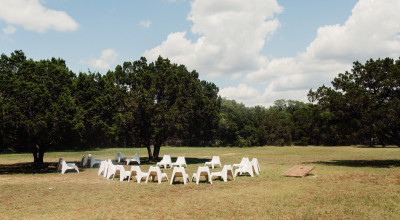Do Interventions Really Work?
April 14th, 2021
When you have a loved one, friend or family member battling addiction it can be tough on everyone. A lot of the time, the addict won’t even think they need help or maybe they want it but they are too scared to ask for it. There can be so many reasons why someone battling addiction won’t get the help they need on their own. This is when loved ones will often intervene via an intervention.
Often times, those battling addiction don’t realize how much their addiction is affecting those around them. There can come a point when those around them say enough is enough and they band together to try and get the addicted individual to realize it’s time to get some help.
So what exactly is an intervention? An intervention is a well-organized event designed to break through an addicted person’s denial so that they can recognize and hopefully make the decision to change their self-destructive behaviors. Interventions are often depicted in movies and TV shows, but they aren’t always as dramatic and hostile as they seem. Interventions should be well-planned to ensure the environment is calm and controlled
Who should be in attendance at an
intervention? Anyone who is close to the person struggling with addiction and
has been affected by it can be in attendance at an intervention if they are
comfortable with the confrontation aspect. Sometimes it can even be helpful to
have an intervention specialist on site to help guide the conversation or also
a representative from a rehab who will help guide the steps following the
initial intervention .
What actually happens at an intervention? Typically, each member of the
group outlines the ways in which he or she has been harmed or adversely
affected by the addict's addiction, and pleads with the addict to seek treatment,
and even lists the consequences for not seeking treatment. Once everyone has
had a chance to say their piece, the addict will hopefully have been able to
hear and really understand what they have heard. This ultimate goal is to have
the addict accept that they need help and choose to be admitted into a program.
This is another part of the process - ensuring you have lined up options for the addicted individual in hopes that they are ready to accept help. This will require you to look into options of treatment centers that will accept them and that they can afford or pay for with insurance. As we mentioned above, sometimes treatment facilities are even willing to assist in the intervention process and have a representative come on site to assist in the transition between intervention to rehab - because typically this process needs to happen quickly while the addict is still willing to seek help and they don’t have time to change their mind or make any poor last minute decisions.
Do interventions actually work? Ultimately, there is little data available on the effectiveness of interventions, likely because effectiveness is somewhat difficult to define. Addicts are more likely to seek treatment when they undergo an intervention, but interventions don't affect the outcome of the treatment itself. If an addict seeks treatment without being fully committed to a life of sobriety—as some might do in response to the overwhelming peer pressure of an intervention—he or she may actually be less likely to get better.
In general, an intervention is a last-ditch effort for an addict who has consistently refused treatment or fallen off the sobriety wagon. Consequently, most people who undergo interventions are already heavily entrenched in their addictions. But when addicts have strong social support and access to good treatment, they're more likely to get better; an intervention can serve as a rallying point for a family that is dedicated to helping a loved one achieve wellness.
If you are planning to take on an intervention for a loved one or friend, make sure you are prepared. That’s the name of the game. Plan to have the right people there. Ensure the people in attendance are prepared for everything that could take place and how to best handle any conflict that arises. As mentioned before, have a plan for if the addicted individual decides to get help - and also have a plan for if they don’t. It is important to prepare yourself for both outcomes.
At the end of the day, addiction is a ruthless disease and it can take sometimes more than one intervention in order to get the addict the help they need. At Windmill Wellness Ranch, we are here for you. Reach out to our team today to have us help guide you through this process and even assist you in ensuring your loved one gets on the path to recovery.


